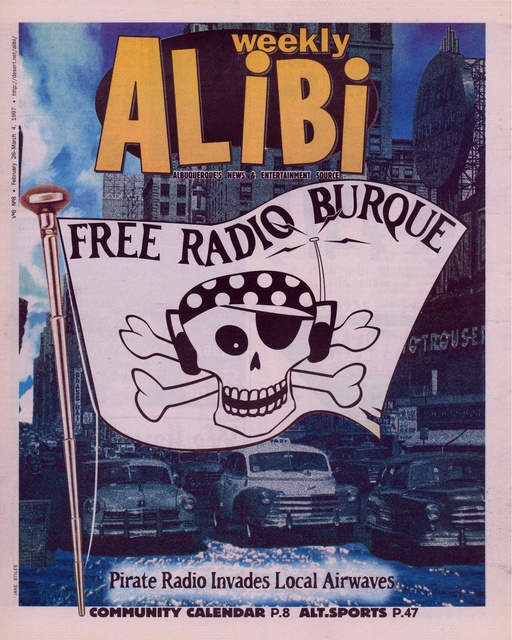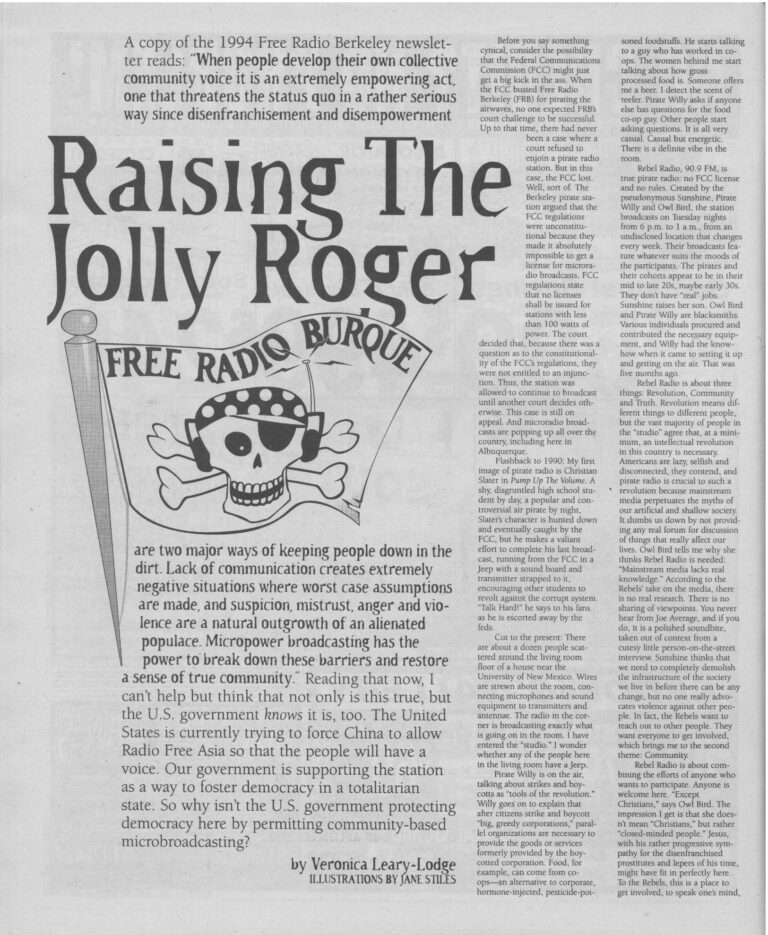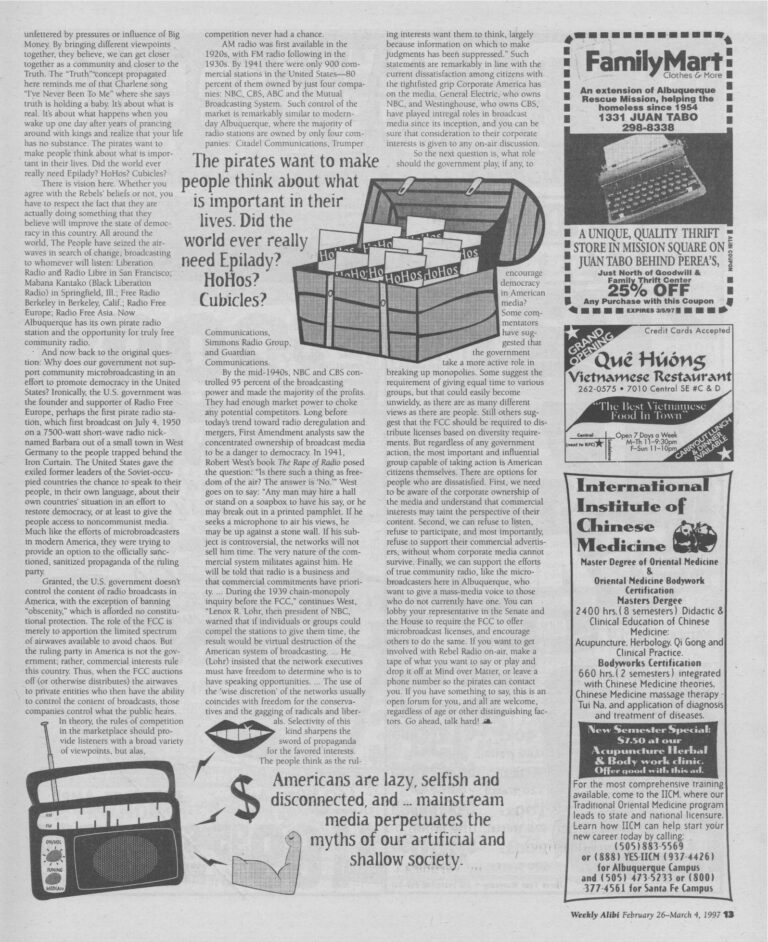Free Radio Burque: 1997 Rebel Radio Story Unearthed



Latest Article|September 3, 2020|Free
::Making Grown Men Cry Since 1992


